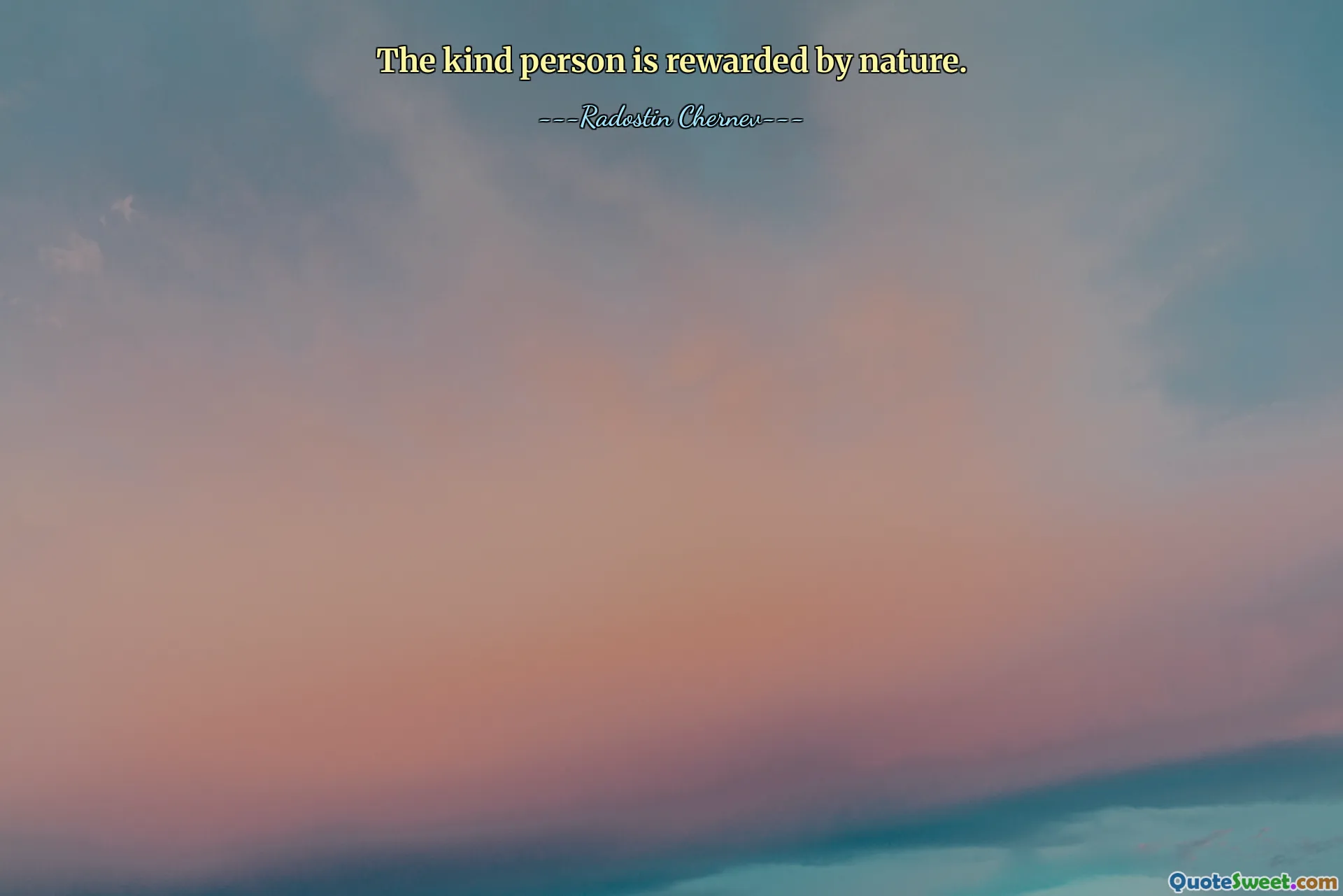
The kind person is rewarded by nature.
This quote gently emphasizes the intrinsic return that kindness often yields in the natural cycle of life. It suggests that kindness is not only a moral virtue but also a behavior that is aligned with the rhythms and laws of nature, which in turn 'reward' those who practice it. From a philosophical standpoint, this can be interpreted as the idea that good deeds and compassion generate positive energy or consequences that benefit the giver, whether through personal satisfaction, social reciprocity, or a harmonious existence with the environment. In a broader social context, the quote underlines how kindness fosters trust, strengthens relationships, and nurtures community resilience, ultimately supporting a more supportive and cooperative society. Importantly, it implies a natural justice or balance—where kind actions do not go unnoticed or unrewarded, even if the rewards may not always be immediate or material. Embracing such a perspective encourages an ethic of kindness for its own sake, rather than for external gain. In a world often pressured by competition and self-interest, this reflection reminds us of the enduring power of kindness as a foundational human value that sustains both individual well-being and collective life. By recognizing that nature itself 'rewards' kindness, the quote also subtly calls attention to the interconnectedness between humans and the natural world, suggesting that our actions toward each other resonate beyond human society into the very ecology we inhabit. This holistic view challenges us to embody kindness consistently, confident that the richness it brings is reciprocal, nourishing our lives in manifold and meaningful ways.











